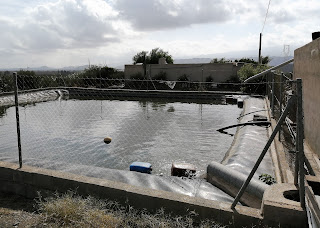If I am faced with a word or name I'm not familiar with, I copy it out carefully. I expect most of us do. The majority of people have easy-enough names, while the ones that don't, use abbreviation or nick-names and the world moves forward gratefully.
There are names which are very long, and as schoolkids, we would remember them for the pleasure of the thing. Ashok Rachanivarakonkul was in my class (he was an exchange student from Thailand) and I was a couple of years behind Hubert Wolfeschlegelsteinhausenbergerdorff, who later changed his name - much to our dismay - to Wolfe.
When called upon to write to someone, or use his name in print, the thing is to spell it right. The Spanish, unfortunately, wouldn't agree. It's odd, because apart from the confusion between the letters 'b' and 'v' ('Is that Bee like in Barcelona or Vee like in Valencia?'), and the inclination towards writing haber instead of a ver, Spanish is phonetic and easy to spell.
Whereas English, my dears, most definitely ain't.
Names are the problem in Spain. The system here is different, peculiar and odd. As you know, the first last name (which came from the father) is the favoured name, the second last name (from the mother), less so, unless the owner prefers it. Thus José Luis Rodríguez Zapatero liked to be called Zapatero, not because of his mum, but because it sounded better: more presidential.
But in the hospital, unaware of the nicety, they'd still call out for Rodriguez, and, you know, half a dozen would stand up: Rodríguez being a common name, like García, González and Fernández.
No wonder Alfredo Pérez Rubalcaba went by his matronymic.
In short, the system means that a child bears an alluring mixture of his parents patronymics - or first last names. They can now, by law, chose the procession if not the combination, making one's first last-name, second.
Since this makes perfect sense to the Spanish, they are understandably confused by the system used everywhere else. We Anglos, baring complications, have a first name, a middle name and a last name. The Spaniards will usually pounce on the middle name and call you by it. Especially in the hospital. 'How are you doing Señor Paul?' and so on. Easy enough, unless you are asking at the reception after a friend (you probably don't know his last name, and certainly not his middle one). 'Er, fat, red-faced, balding...'.
Foreign names are considered slightly frightening by many Spaniards. Too many letters or not enough. In today's newspaper, Helen Prior becomes Hellen. Even a simple John becomes Jhon or Jhonathan (or even yonathan). There was once a brand of Spanish denims called Jhon Jeans. Flared as I recall. I may have an old pair somewhere.
My dad was called William, or rather more often, at least in print, Willian. My own name is pretty simple, but even after being here for 50 years, and, I think, having made at least a modest splash during that time, people can still get it wrong. There's a mention of me in a book published by the Diputación de Almería, about how I ran an English-language newspaper in this province during fifteen years. So much for posterity, they've spelled my name wrong: Lenox Napper.Don't you sit down and copy it letter by letter? Really, must we all panic?
An American friend was stopped by the police and they had called in my father to translate. The Guardia Civil wearing his tricornio hat on the back of his head and smoking a Ducados wanted to see the American's passport. He laboriously tapped out the name with his trigger finger, click click, pause, click on the old typewriter...
'Show me Señor Eric's driving licence' said the cop eventually.
'His name is Barco, see, it says here, Arnold Eric Barco', said my father.
'Driving licence', said the irritated cop, 'why do you foreigners have such peculiar names, anyway?', he asked.
Arnold the American had had enough by now, and he tossed his international driving licence - a document which is printed in various languages for just such a moment as this - down on the desk, which flapped open at the section in Chinese.
'What the good fuck is that?' asked the Guardia, aghast.
My father bent down over the desk and peered at the page, 'it's Chinese', he said.
'Get the hell out of my cuartel', roared the policeman, scrambling to his feet.
...
Perhaps this explains why everyone in Spain has a nickname, which is usually Pepe or Paco. In fact, when I was a kid, the local people used to call me Pipo.
I guess it's all to do with concern over the spelling

 No?,
thought Chris. Perhaps, since it’s a streamer, I should open another.
He placed the second suppository, with its agreeable smell of cocoa
butter, into his other nostril and sat back with the air of a man who
has conquered a new adventure. The two suppositories dangled slightly
from his nose and he found that had to hold them in place. It takes
practice, he thought.
No?,
thought Chris. Perhaps, since it’s a streamer, I should open another.
He placed the second suppository, with its agreeable smell of cocoa
butter, into his other nostril and sat back with the air of a man who
has conquered a new adventure. The two suppositories dangled slightly
from his nose and he found that had to hold them in place. It takes
practice, he thought.

